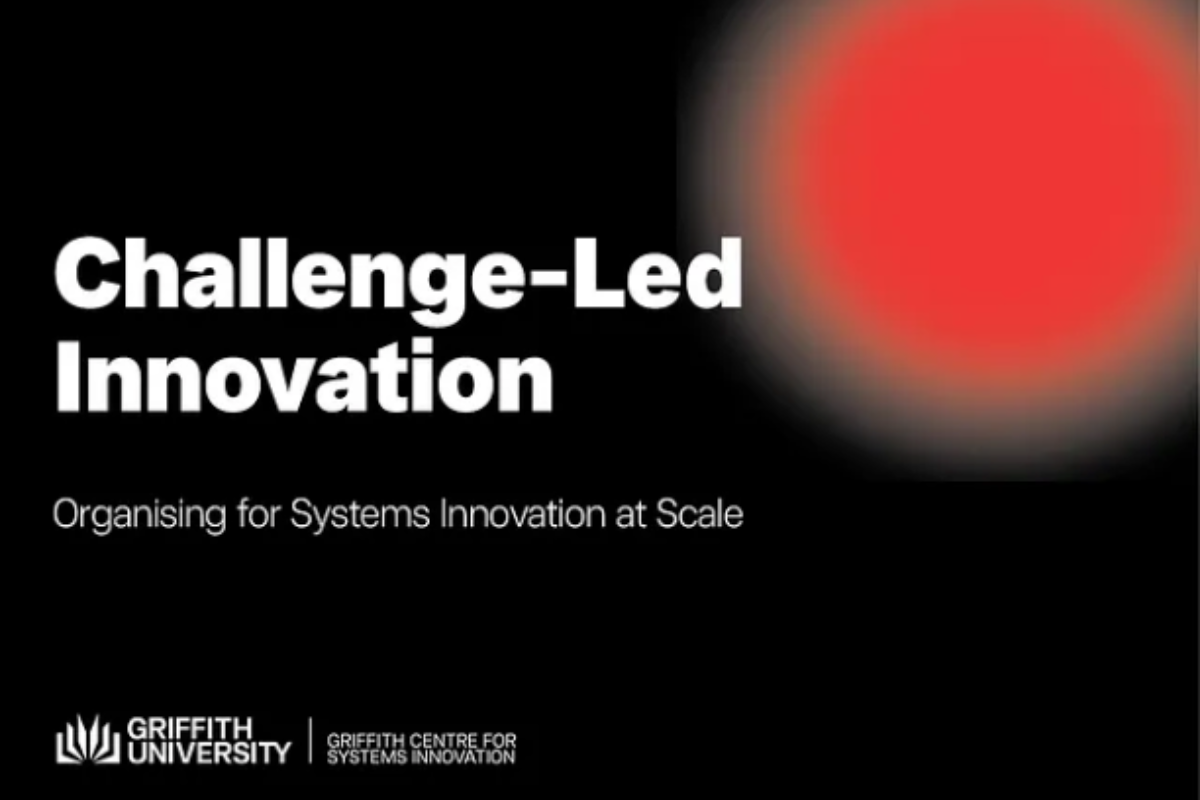
Case studies
'Challenge-led Innovation: Organising for Systems Innovation at Scale', Griffith Centre for System Innovation (2023)
This resource introduces Challenge-Led Innovation (CLI) as a framework to address complex, large-scale challenges like climate change and inequality. Based on ‘Mission-oriented’ approaches developed by Mariana Mazzucato at UCL IIPP, CLI moves away from traditional innovation models by focusing on collaborative, mission-driven efforts across sectors and communities.
View resourceSummary
Core elements of Challenge-Led Innovation:
- Directional Goals: instead of fixed targets, CLI emphasises setting broad, directional goals that orient efforts toward transformative outcomes. These goals allow for flexibility and adaptation, recognizing that complex issues require iterative, long-term approaches.
- Challenges: challenges are “fields of action” that drive innovation across sectors. They are framed as “What if” questions (eg, “What if we prevented plastics from entering oceans?”), fostering creative problem-solving and collective engagement.
- Innovation portfolios: rather than isolated projects, CLI promotes innovation portfolios - groups of interconnected projects that work together to address different facets of a challenge, creating a coherent learning ecosystem.
- Adaptive learning and measurement: CLI uses a “learning-first” approach to measurement, focusing on signals and patterns rather than fixed indicators. This allows for agile adaptations and real-time sense-making as teams learn from the evolving impact of their initiatives.
This approach to innovation is designed to mobilise communities, government, and businesses toward shared goals, fostering resilience and adaptability in response to society's most pressing challenges.

We’d love to hear from you!
Reach out to one of our team members, and share input and ideas about how we can evolve Understorey.
Get in touch